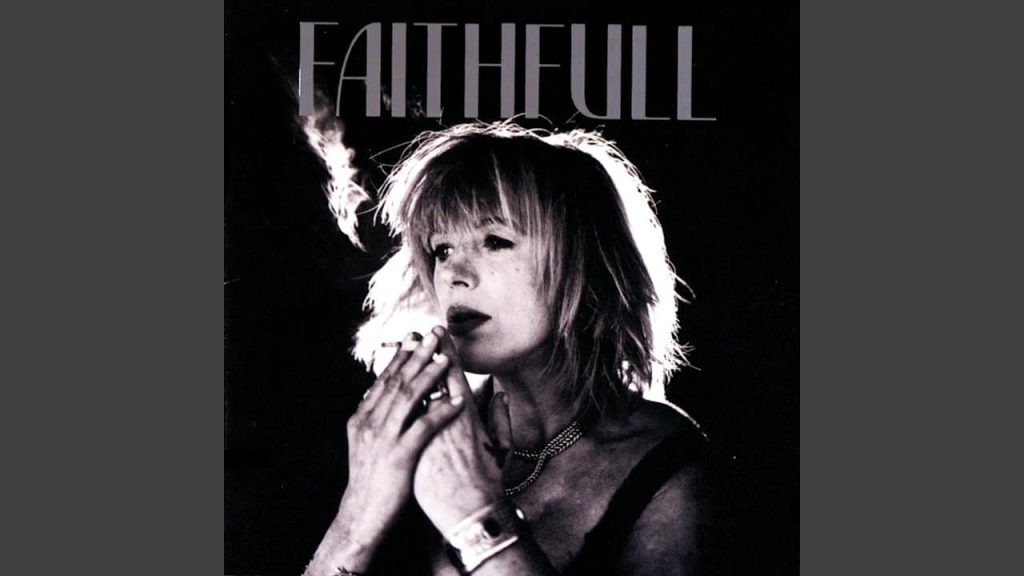
A Haunting Portrait of Suburban Despair: “The Ballad of Lucy Jordan” by Marianne Faithfull
Marianne Faithfull’s rendition of “The Ballad of Lucy Jordan” transforms Shel Silverstein’s biting, melancholic tale into a haunting exploration of modern disillusionment and the silent decay of unfulfilled dreams. Originally penned by Silverstein and first recorded by Dr. Hook & the Medicine Show in 1974—with the title sometimes spelled “Jordon”—this song tells the story of a suburban housewife whose seemingly mundane life unravels beneath the weight of unmet expectations and existential isolation. In Faithfull’s version, the narrative is imbued with an almost cinematic sense of despair and bittersweet resignation, making it one of her most memorable and emotionally resonant covers.
From the moment Faithfull’s distinctive, smoky voice begins, you’re drawn into Lucy’s world—a world where the laughter around her grows unbearably loud, pushing her toward a moment of ultimate surrender atop a rooftop. Her vocal delivery is both fragile and defiant, encapsulating the profound sadness and underlying rage of a woman trapped by societal expectations and the crushing monotony of everyday life. It is a performance that speaks directly to the heart, evoking images of neon-lit suburban streets and quiet, desperate evenings spent pondering what might have been.
Musically, the arrangement is minimalist yet powerful, providing just the right atmosphere to let the lyrics breathe. Sparse instrumentation—accentuated by plaintive piano chords and subtle, echoing guitar licks—creates a soundscape that feels intimate and raw. This deliberate simplicity amplifies the song’s themes of isolation and internal collapse, allowing Faithfull’s emotive delivery to shine through. Every note seems to underscore Lucy’s journey from hopeful existence to bitter resignation, capturing the essence of a life slowly slipping away in the shadows of unfulfilled dreams.
Lyrically, “The Ballad of Lucy Jordan” offers a scathing critique of suburban life. Lucy, the song’s protagonist, is depicted as a woman whose external world of domestic routine belies an inner life brimming with lost potential and simmering discontent. The narrative poignantly captures her descent into a mental and emotional breakdown—a breakdown so profound that it ultimately compels her to seek escape from a world that has grown too loud, too demanding, and too indifferent to her suffering. In Faithfull’s interpretation, these lyrics take on an almost prophetic quality, reflecting broader themes of disillusionment and the unrelenting pressure to conform.
For many listeners, Faithfull’s version of “The Ballad of Lucy Jordan” is not merely a cover—it is a transformative experience that resonates on a deeply personal level. It speaks to anyone who has ever felt trapped by the expectations of society, burdened by the weight of a life that seems predetermined yet painfully unfulfilling. Her version of the song offers a cathartic release, a way to confront the darker corners of the human experience where hope and despair intertwine.
Over the years, this track has cemented its place in the pantheon of classic covers, largely because of the raw vulnerability and strength evident in Faithfull’s performance. It’s a song that continues to evoke a powerful emotional response, inviting listeners to reflect on their own experiences of loss, loneliness, and the quiet battles fought in the confines of everyday life.
In the end, “The Ballad of Lucy Jordan” by Marianne Faithfull stands as a timeless, haunting meditation on the price of unfulfilled dreams—a musical journey into the heart of suburban despair, where even the most ordinary existence can conceal a profound and heartbreaking truth.